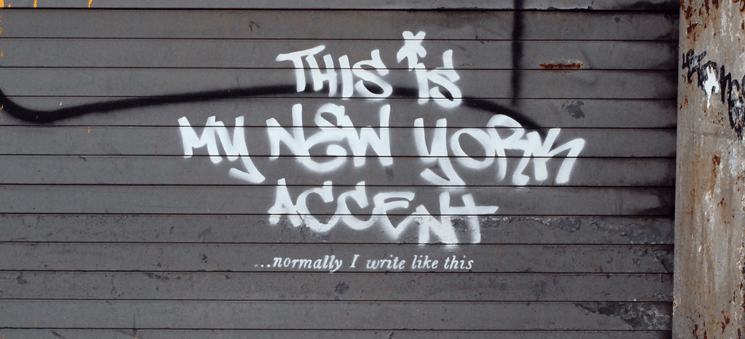
I get nervous every time someone asks me what I do for a living. I hate this question because telling a stranger I am a pastor invites all kinds of responses. And, at times, these responses have been negative.
It is believed Mahatma Gandhi said, “I like your Christ, I do not like your Christians. Your Christians are so unlike your Christ.” Statements like these have been made millions of times, and with good reason. Many of us live unlike Jesus.
What I have learned is that negative responses to my line of work have nothing to do with who I am, because most of these people don’t know me. They are just responding to Christians in general. Since I am a pastor, I must be “one of them.”
In those moments, I am tempted to explain what kind of pastor and Christian I am, and what kind of Christian I am not. I want them to know I am not like those Christians that most people dislike.
I know I’m not alone in this. Many of us feel this way, even if we are not pastors.
In that moment when someone finds out we are a Christian, some instantly make negative assumptions, and it makes sense that many feel this way. Christians have done many awful things in the name of Jesus.
Like me, you may be tempted to distance yourself from those who have done wrong, and feel like you have to justify yourself.
But it doesn’t work to point out what’s wrong with other Christians. The most common criticism I hear about Christians and the Church is that we are hypocrites. And how hypocritical is it to point out the faults of those Christians and not acknowledge ours?
Perhaps the best thing we can do is to speak, without shame, of our broken, bruised and bent souls. We should admit that all of us, in one way or another, are unlike Jesus. We should not shy away from naming our faults or the fault of Christians as a whole. After all, our faults are part of our story.
The Christian faith teaches all of us have messed up, done wrong and made bad choices. Admitting you have sinned is central to being a Christian. So, why do we so quickly move to the place of ignoring our weaknesses and pointing the finger at others? We must be willing to own up to our own mistakes and the mistakes of others.
But we can’t stop there. We should be willing, in true humility, to apologize for our mistakes and the mistakes of the Church as well. We should admit we have been wrong, caused pain and that we share in the guilt of misrepresenting Jesus. A friend of mine recently told me about apologizing to his co-workers.
They all know he is a Christian, and several of them made their dislike of Christians well know to him. A few weeks ago, he got angry, cursed and made a bit of a scene. Not long after, he realized what he had done was wrong. He went person-by-person through his office and apologized. One of his co-workers who was the most cynical toward Christians said to him, “I didn’t know Christians ever apologized. It’s good to finally hear it!”
In my experience, people don’t expect Christians to be perfect. Any time I have ever admitted my faults, no one has been surprised. It turns out everyone already knows I am imperfect. They have just been waiting for me to be honest about my imperfections. Too often we criticize the behavior of others and condemn the masses for their grave sin, all the while ignoring our own sinful behavior.
This does not mean we should ignore the damaging attitudes of other Christians. Remember, Jesus constantly called out the “religious” who participated in an unjust system that oppressed the poor, who condemned sinners and who hated people of other races and religions. But there was something about the heart of Jesus that was different than mine often is.
He wasn’t just angry, He carried sorrow so deeply that it caused him to weep for the religious (See Luke 19:41-44). His heart broke for the sinners in the margins and for the super religious who thought they were doing the right thing. It may do us well to ask if we carry that same kind of sorrow for those Christians within us.
If I’m honest, I usually don’t. Especially when it comes to judgmental, bigoted or legalistic Christians. More often than not, I am just angry at how they treat others. Mostly, I am frustrated because others associate me with them. All I am really doing is judging those who are judgmental, and being intolerant of those who are intolerant. In the end, I end up much like the people I want to distance myself from.
But if we are more honest and open about ourselves, we would see the log in our own eyes, and know we have a lot of work to do on ourselves before we can deal with the splinter in the eyes of our brothers and sisters. And if we practice this kind of honesty and openness, we then can speak about something else: namely, the grace, love and transforming power of God.
It is then we can move from talking about all the bad things Christianity has brought about and instead talk about the good things Jesus has brought about. When others see this, there’s a chance they may be willing to be more open about their wounds too. If this happens, we won’t need to tell anyone what we are not like, because they will already know what we are like.





















